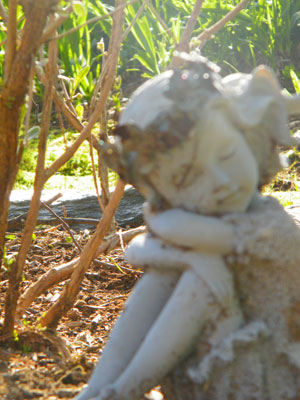All Nonfiction
- Bullying
- Books
- Academic
- Author Interviews
- Celebrity interviews
- College Articles
- College Essays
- Educator of the Year
- Heroes
- Interviews
- Memoir
- Personal Experience
- Sports
- Travel & Culture
All Opinions
- Bullying
- Current Events / Politics
- Discrimination
- Drugs / Alcohol / Smoking
- Entertainment / Celebrities
- Environment
- Love / Relationships
- Movies / Music / TV
- Pop Culture / Trends
- School / College
- Social Issues / Civics
- Spirituality / Religion
- Sports / Hobbies
All Hot Topics
- Bullying
- Community Service
- Environment
- Health
- Letters to the Editor
- Pride & Prejudice
- What Matters
- Back
Summer Guide
- Program Links
- Program Reviews
- Back
College Guide
- College Links
- College Reviews
- College Essays
- College Articles
- Back
Forever in Granite MAG
I remember walking into the granite slice of earth that carried the names of those who did not come back. If the sun had not been out, I would have imagined the descent as the path to the underworld.
Sadness had sunk into the ground and lay there cushioning my steps as the names grew vast and neverending. Berry Joe Bridges, Robert E. Tompson, Charles D. Meyers Jr. Every murmur, rustle, and sniff seemed to amplify off the wall of stone and lodge in me as I traveled past the weepers and further along the black massacre. Stephen R. Bednar, Robert M. Larson, Rudolph Stevens. The roses against the granite looked like blood on water when I squinted. I looked from side to side and saw my mother coming toward me.
“Why are they listed chronologically?” I asked.
“There are a lot of Smiths.”
Maya Lin must have understood. She knew what the war had left behind, and she constructed the memorial in less than four years. Black granite bedding the white names, like yin and yang, the dead rested in balance and peace. Lin knew that no relation would want to reunite with a sea of other Smiths or Clarks, or Taylors. “He was mine,” they would say, “He was special. He shouldn't be on a menu.”
I remember stepping back and thinking, There are so many. I watched the mourners lay flowers, cards, and letters on the ground as an offering to the spirits, and then I understood. Those who remained would never forget. There was no moving past their grief or their memories. This catastrophe had silenced everyone; the mourners could only express their pain through words on a page, or flowers on stone. Even the children seemed quiet, their high, young voices banished from the dark.
I remember sitting in the grass and being relieved to feel life under my hands again. If I pushed past the blanket of sadness, maybe I could feel the blades grow. I was tired of death. I was tired of guilt and anger and the desire to blame.
Linwood L. Baker, John A. Gross, Allen H. Clark. I kept browsing the wall, tasting their names on my tongue and hearing them quietly under my breath. I felt like I knew them and could hear what they needed to say. They were poets and lovers, doctors and scientists, friends and neighbors, but most importantly, they were people who deserved respect. Because of Lin's work, they received it.
I rolled onto my back and stared up at the speckled sky. Would the soldiers have even noticed the sky in Vietnam? Was it this same blue? How many of them knew they were going to die? I imagined what they must have seen. I imagined helicopters flying overhead while one by one the soldiers waded through swamp water up to their chests. Were they waiting for the bombs to fall?
When we left the memorial, the experience stayed with me. I cared when I saw the wall. I cared that people were dead and that I had the opportunity to feel empathy with another human being. I will always be grateful to Maya Lin for her memorial, but even more importantly, I am grateful that no one I knew was on it.

Similar Articles
JOIN THE DISCUSSION
This article has 5 comments.

3 articles 0 photos 54 comments
Favorite Quote:
If your reading this your too late - Drake